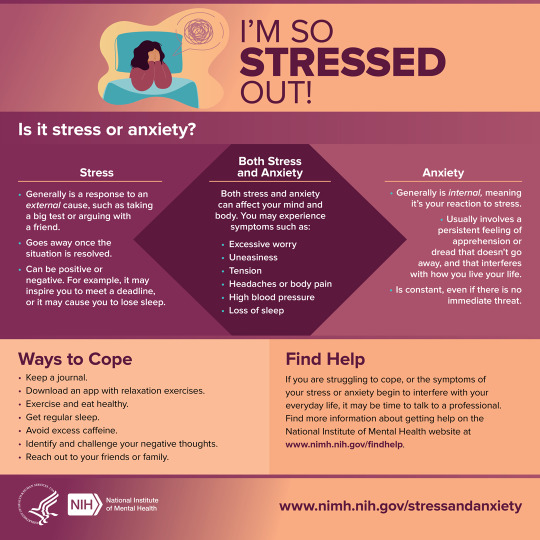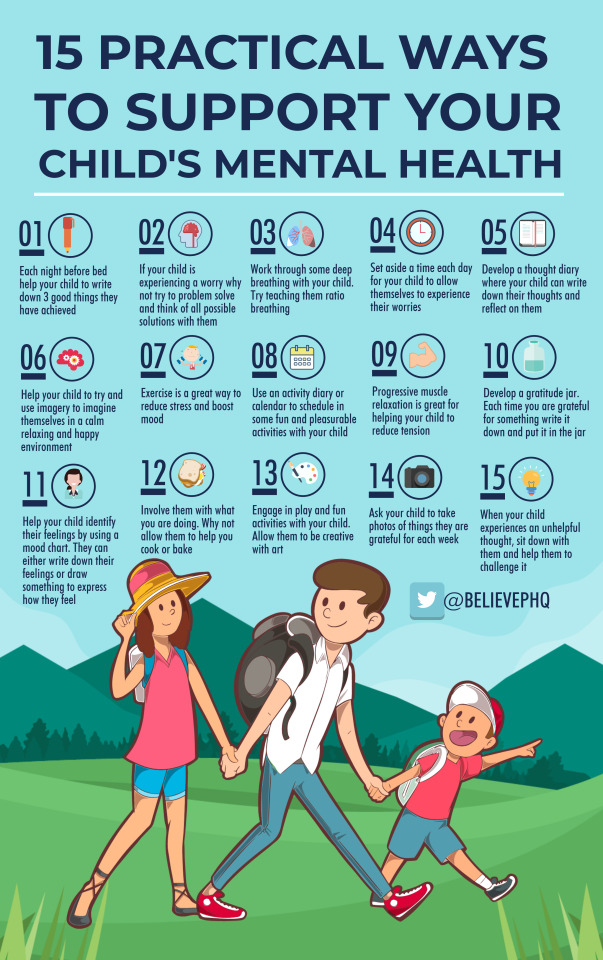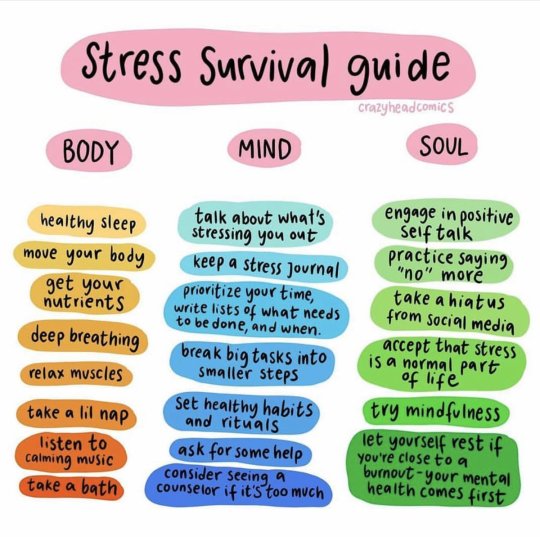Quote
You don’t have to be positive all the time. It’s perfectly okay to feel sad, angry, annoyed, frustrated, scared and anxious. Having feelings doesn’t make you a negative person. It makes you human
Lori Deschene
2 notes
·
View notes
Photo

TIPS FOR TALKING ABOUT MENTAL HEALTH
Talking about your mental health is important, but it can be difficult to open up. If you are struggling to talk about your mental health, we have a few tips.
Write a letter if you are afraid to talk face-to-face.
Talk to someone who doesn’t know you such as a therapist or psychologist if you don’t feel comfortable talking to a loved one.
Start by journaling and then transition to speaking.
Practice speaking in the mirror before you talk to someone if you are struggling to do so.
Remember that you will probably feel a great sense of relief after talking with someone.
Remember that you are not alone.
As a community we must do more to help our loved ones by supporting them through the dark days and talking about their mental health will spark the initial action. With suicide rates increasing, we must come together and find positive ways to involve ourselves in the conversation and ultimately get our loved ones the help they need before it’s too late.
Source: https://www.banyanmentalhealth.com/2018/08/01/why-talking-about-mental-health-is-so-important/
1 note
·
View note
Photo

What is the difference between stress and anxiety? These two may seem identical but no, they are different yet connected. Take some time to read this infographic for your own benefit and find ways to cope when you are actually experiencing either of the two.
Source: https://www.nimh.nih.gov/health/publications/so-stressed-out-infographic/index.shtml
1 note
·
View note
Photo

WHY TO START TALKING ABOUT MENTAL HEALTH
1. Remove the Stigma - By talking about mental illness on a more regular basis, we as a society will hopefully unveil the false notions that plague this topic. When these myths are debunked, it should help remove the stigma surrounding mental health.
2. Mental Health Disorders are Growing - The prevalence of some mental health disorders has risen in the past few decades. One study found that the occurrences of Major Depressive Episode in the youth have increased from 11.93% to 12.63% in one year.
As more people are affected by these issues, it just proves that you are no longer alone in your struggles and talking about mental health should be more acceptable.
3. Promote Treatment & Decrease Rate of Suicides - Of the many reasons why we need to talk about mental health, this is arguably the most important. Because mental health is so taboo, too many people are not getting the treatment they need.
In turn, their poor mental health could lead to suicide. One research study found that over 90% of people who commit suicide had symptoms of a mental health disorder.
Source: https://www.banyanmentalhealth.com/2018/08/01/why-talking-about-mental-health-is-so-important/
1 note
·
View note
Photo

MENTAL HEALTH MYTHS AND FACTS
Myth: Children don't experience mental health problems.
Fact: Even very young children may show early warning signs of mental health concerns. These mental health problems are often clinically diagnosable, and can be a product of the interaction of biological, psychological, and social factors.
Half of all mental health disorders show first signs before a person turns 14 years old, and three quarters of mental health disorders begin before age 24.
Unfortunately, less than 20% of children and adolescents with diagnosable mental health problems receive the treatment they need. Early mental health support can help a child before problems interfere with other developmental needs.
Myth: People with mental health problems are violent and unpredictable.
Fact: The vast majority of people with mental health problems are no more likely to be violent than anyone else. Most people with mental illness are not violent and only 3%–5% of violent acts can be attributed to individuals living with a serious mental illness.
In fact, people with severe mental illnesses are over 10 times more likely to be victims of violent crime than the general population. You probably know someone with a mental health problem and don't even realize it, because many people with mental health problems are highly active and productive members of our communities.
Myth: Personality weakness or character flaws cause mental health problems. People with mental health problems can snap out of it if they try hard enough.
Fact: Mental health problems have nothing to do with being lazy or weak and many people need help to get better. Many factors contribute to mental health problems, including:
Biological factors, such as genes, physical illness, injury, or brain chemistry
Life experiences, such as trauma or a history of abuse
Family history of mental health problems
People with mental health problems can get better and many recover completely.
For the more information, click here: https://www.mentalhealth.gov/basics/mental-health-myths-facts
1 note
·
View note
Photo

Children bloom depending on their environment, let’s not ignore our young ones, teach them that it’s okay to not be okay and most of all support them no matter what happens. This infographic will give you more information on how to support your child’s mental health.
Source: https://clubifyapp.com/public/articles/22651
1 note
·
View note
Photo

Stress is a normal feeling that we go through in our everyday lives. However, too much stress can lead to long term consequences and can actually affect our lives deeply. Take some time to read this infographic to learn how to cope with stress!
Source: https://twitter.com/jaxbladefitness/status/1224399694505435141
2 notes
·
View notes
Photo

Mental health is called a sensitive issue for the majority of individuals. When there is a chance to ask for help, there will be people who often judge another person to the point they say awful things like "People who have mental health issues are crazy", this is very common in a lot of countries. Some people tend to hide their conditions and won't hesitate to turn down help or won’t even ask for help since they consider it as a shameful act.
Some people are assumed to be "asking desperately for attention" when they seek professional help wherein this is one of the reasons why these individuals decide to keep silent which is why we, the organization, Team B-well, is proposing the campaign, #AllMindsMatter. This program will help people who are asking for help but are forced to keep silent.
(FOR EDUCATIONAL PURPOSES ONLY)
1 note
·
View note